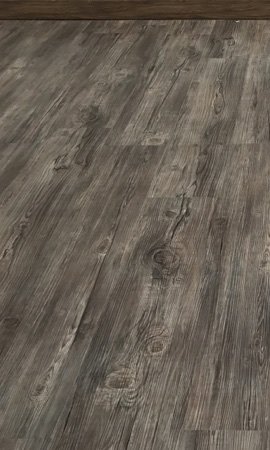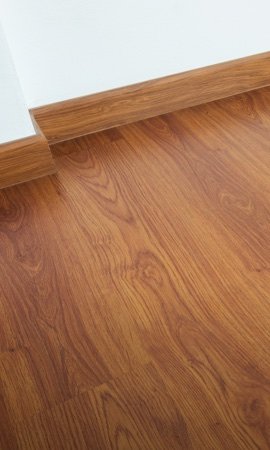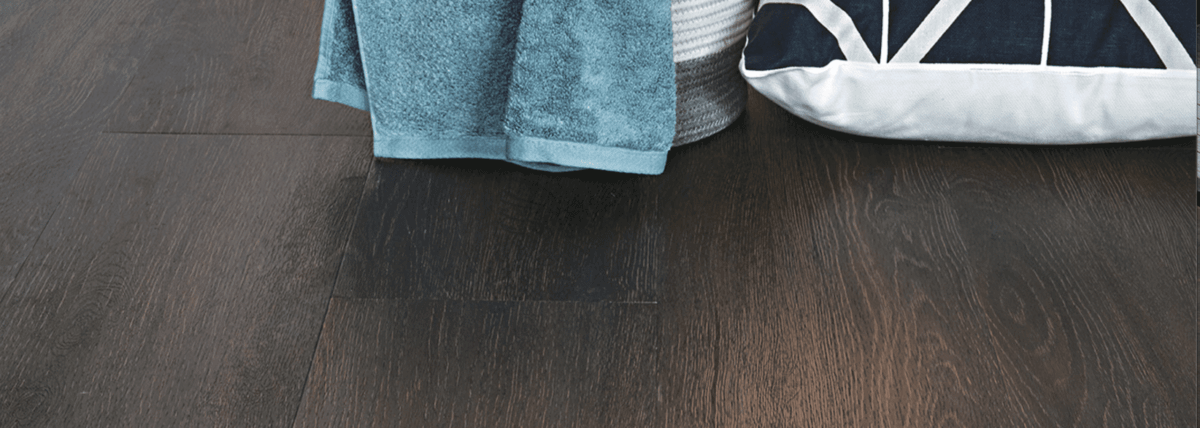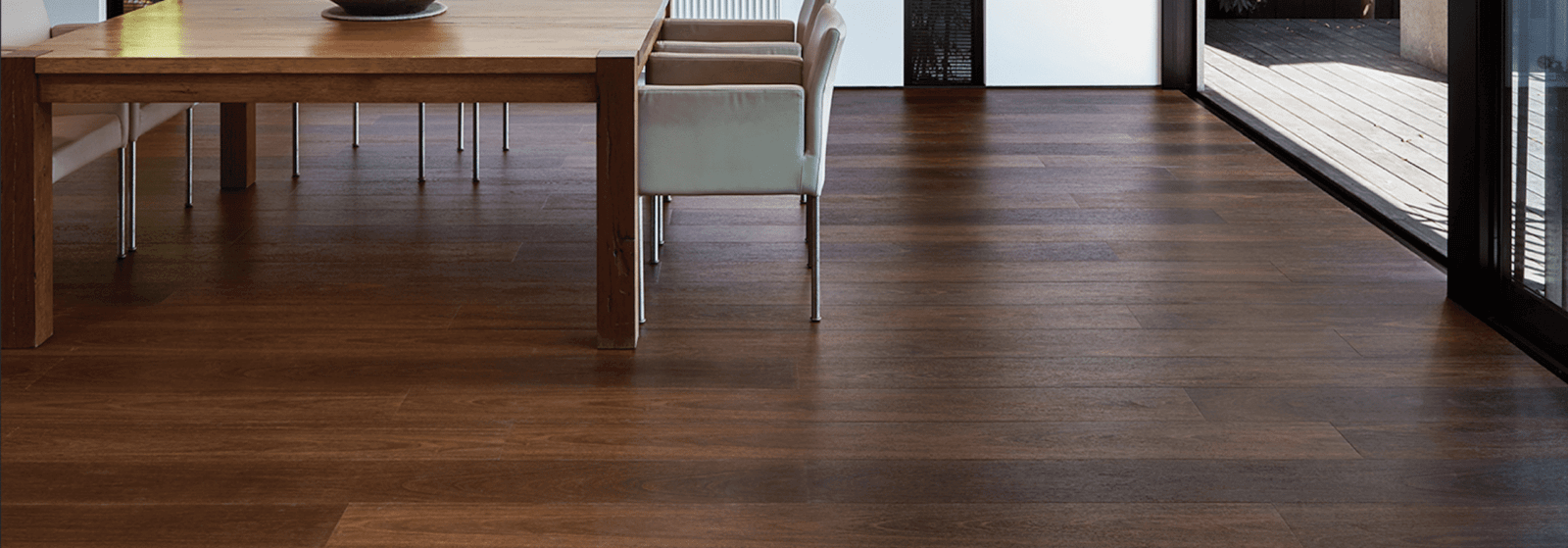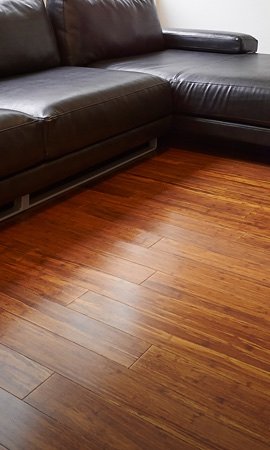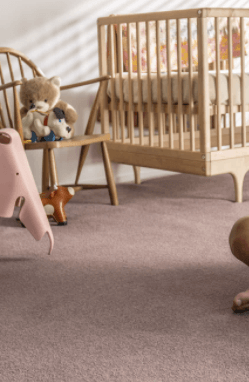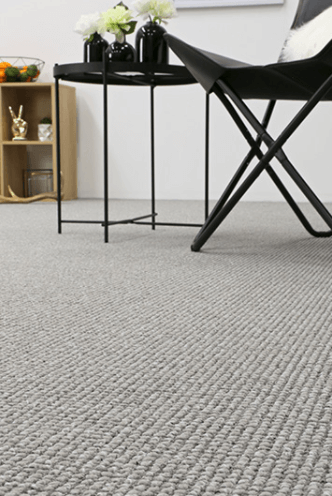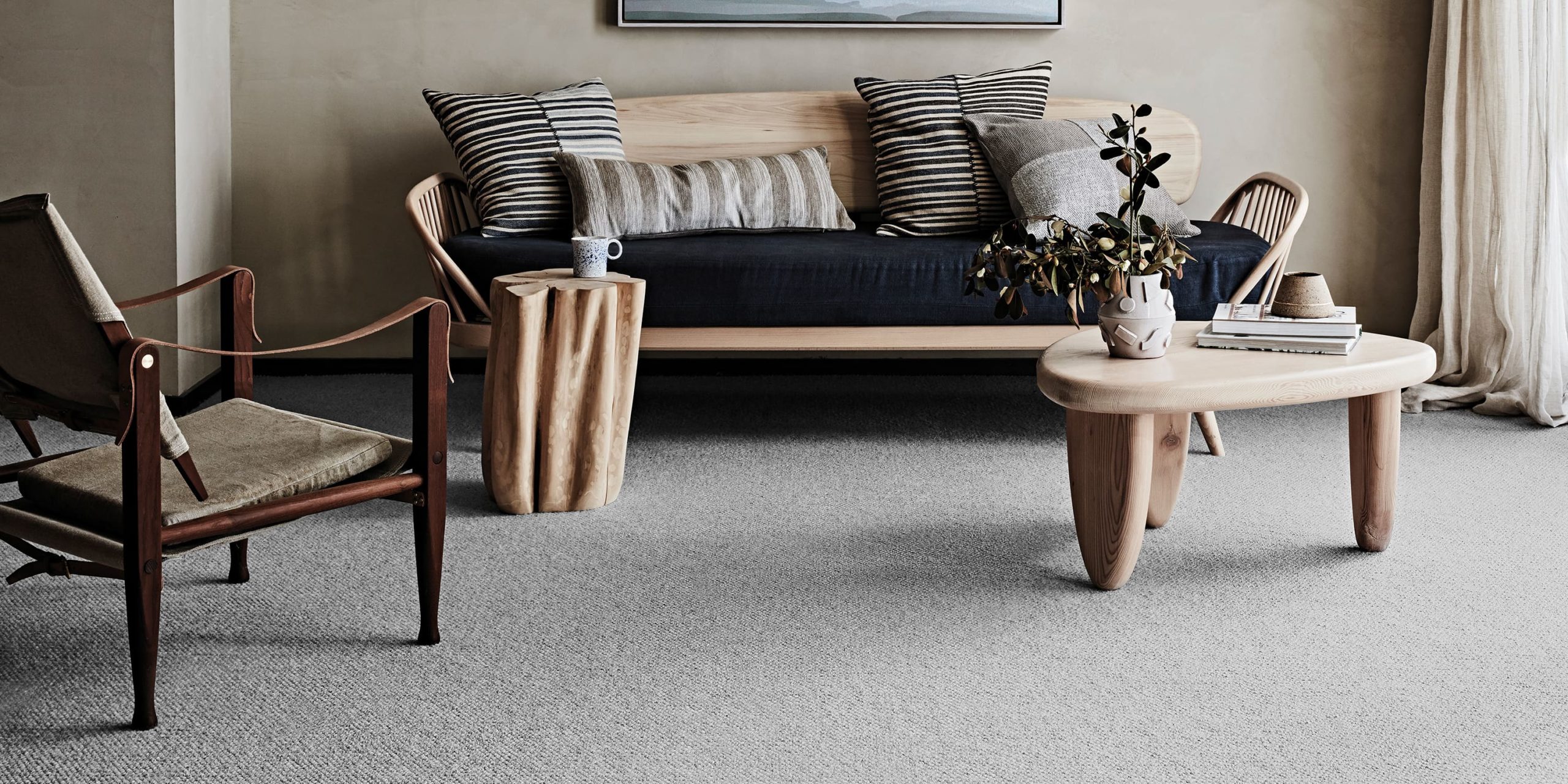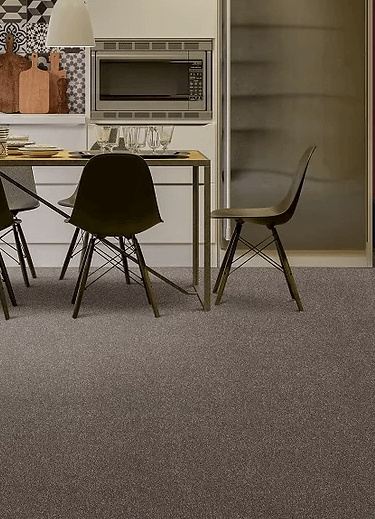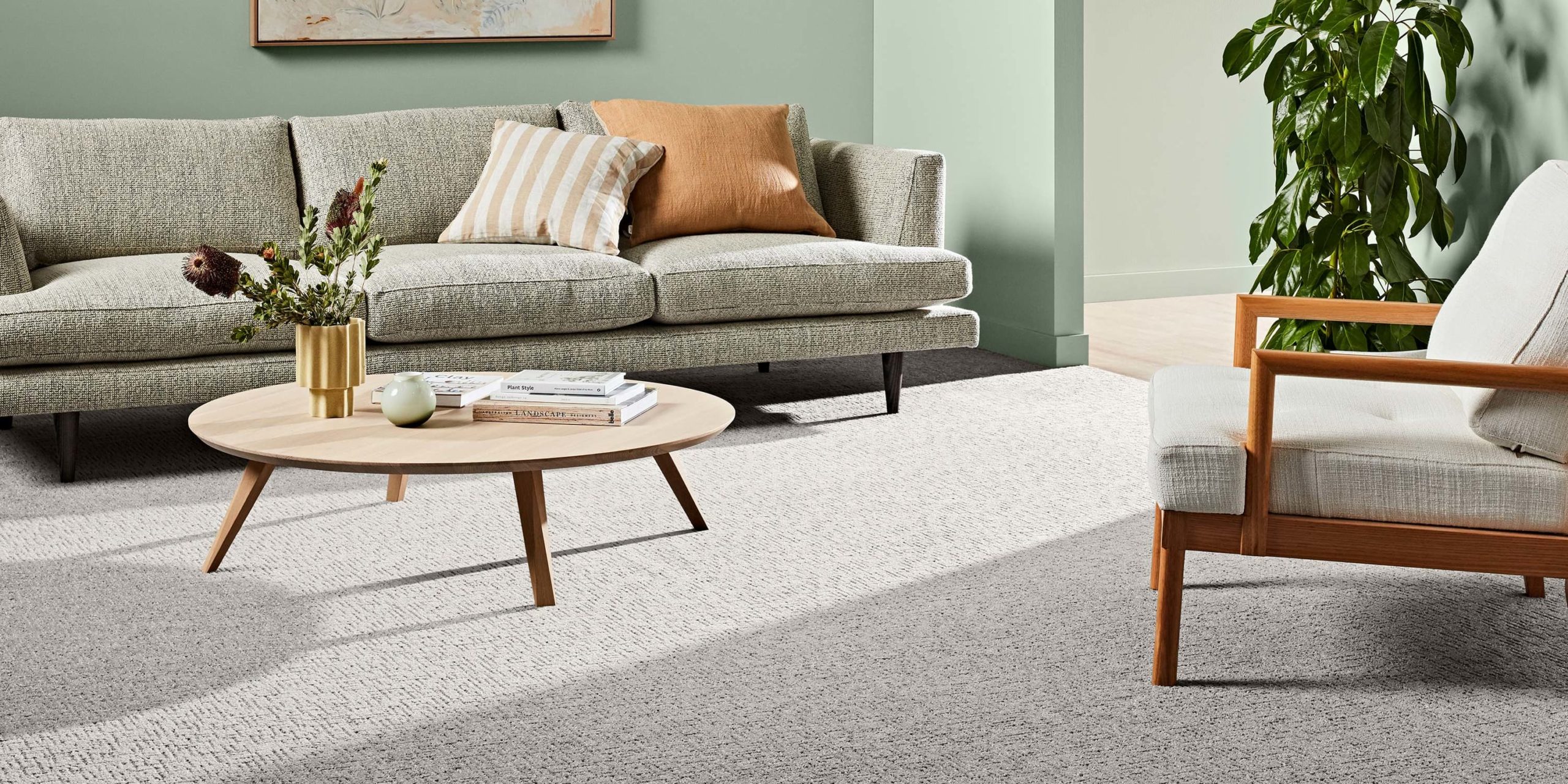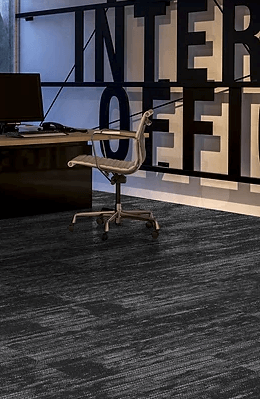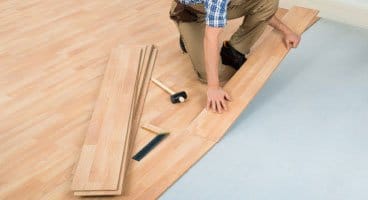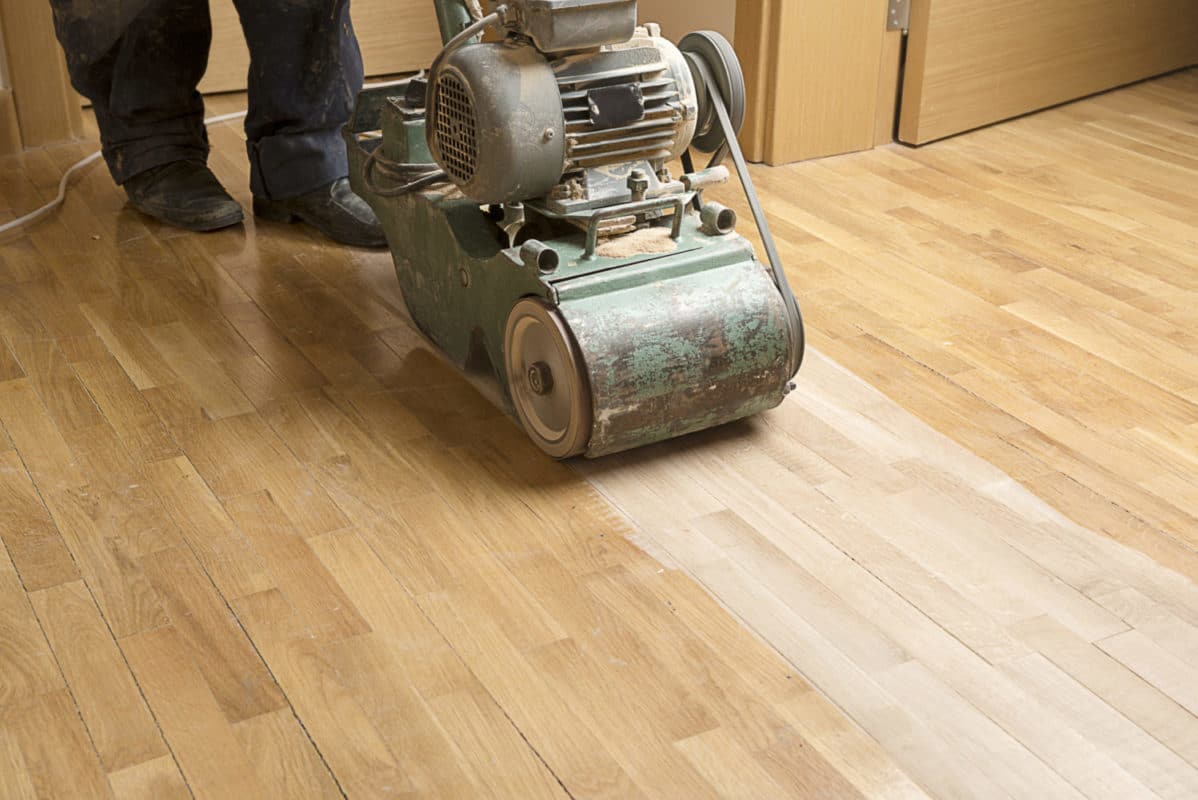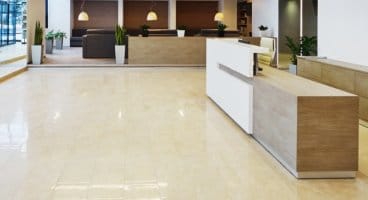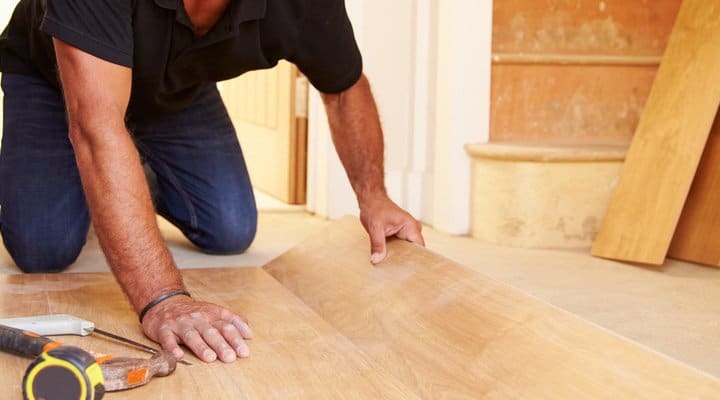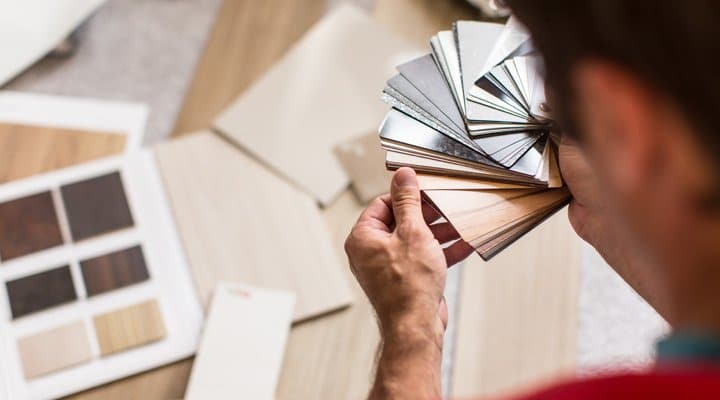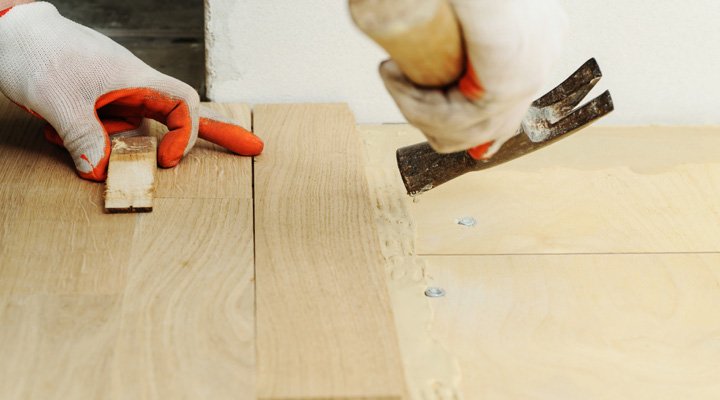

14 Aug What is Engineered Hardwood Flooring?
Engineered hardwood flooring (also known as engineered timber flooring) is a relatively new entrant in the market, combining the elegance of real wood with popular features such as water resistance and floating floor installation.
However, before you consider this flooring type for your home or office, it’s important to know what engineered hardwood flooring is, and clear up some of the commonly held misconceptions about it. In this article, we’ll help you do just that, so you can make an informed decision as to whether it’s right for you.
(And if, after reading all this, you’re as captivated in engineered timber as we are, make sure to check out our more comprehensive Ultimate Guide here!)
What is an engineered hardwood floor?
Engineered hardwood flooring refers to a floor which is constructed of multiple layers, with a slice of real wood that’s sandwiched among a protective coating and a thick plywood substrate.
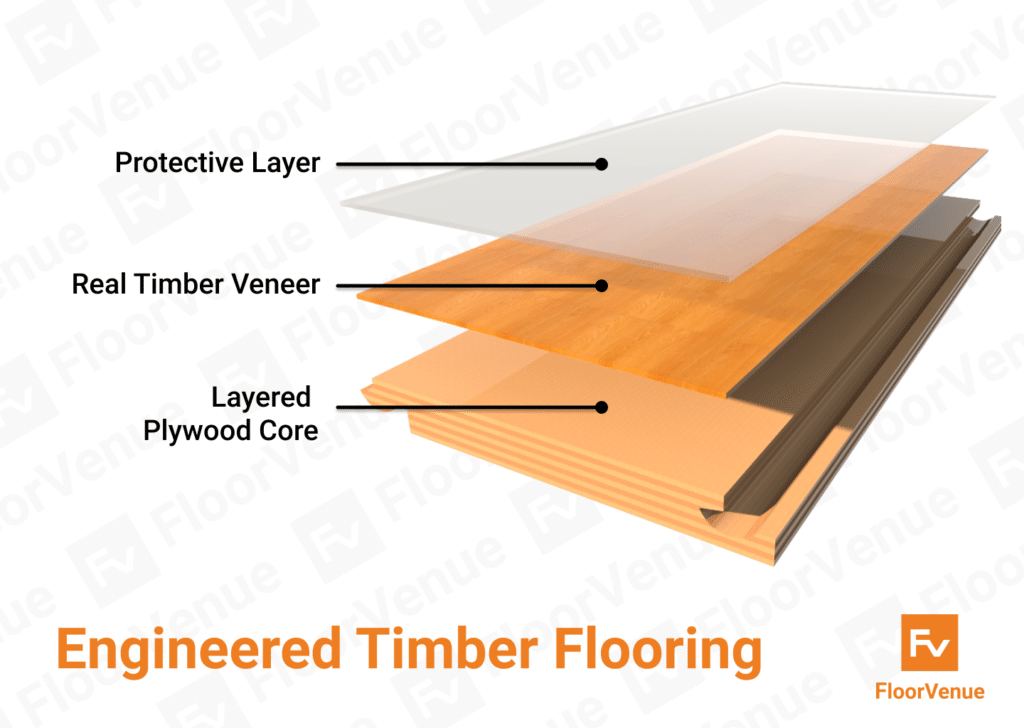

So how do these features translate into real-world flooring products?
Benefits
1) Cost
Firstly, the use of cheaper plywood as the base makes engineered timber more affordable than solid timber floors. Installation is also a cinch, as an engineered timber floor can be installed as a ‘floating floor’ over your existing one. As it doesn’t have to be glued or nailed down like traditional solid timber, you save a lot of time and cost while getting a cleaner, hassle-free result.
Additionally, all engineered floors have been coated with a protective finish during manufacture (‘prefinished’). This makes them durable but also simplifies installation further, as you won’t have to deal with any time-consuming surfacing after your floor has been laid.
2) Versatility
Engineered hardwood uses a core that is stable to changes in moisture and temperature, so expansion and contraction won’t happen as much to these floors in extreme conditions.
Depending upon the products available from your supplier, the finish and core can even make your engineered floor water-resistant. This is especially great if you’d like the look of hardwood flooring in places that see a lot of water, like the laundry and kitchen.
3) Style
Most importantly, the use of real, high-quality timber on the surface means that you can still get the natural beauty of hardwood with engineered timber floors. Although synthetic alternatives like laminate or hybrid floors are becoming increasingly popular flooring options in 2020 and beyond, they just can’t look (or feel) like the real thing.
Not only do engineered timber floors make use of authentic timber, but you can still choose between the wide range of timber species out there. With a selection spanning from Australian hardwood to European oak, your preferred style of timber flooring is likely also available in engineered form!
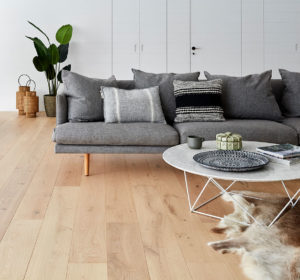

Drawbacks
So what’s the drawback of engineered hardwood flooring, you may ask?
Well, it’s that engineered hardwood flooring just can’t last as long as solid timber. With its thinner layer of timber, engineered flooring can’t be re-sanded as many times, limiting its longevity. But don’t get us wrong – engineered hardwood flooring can definitely last for decades as long as you take care of it!
Now that you know how these floors stack up, let’s take a look at the two of the most common misunderstandings that we’ve seen during our time working with these products.
Do engineered wood floors scratch easily?
No – engineered floors are about as durable as solid timber because they both use a timber surface that is finished with a hard-wearing coating. This allows your floor to resist many of the scratches and dents that it encounters in everyday life.
That being said, engineered timber isn’t scratch-resistant like laminate or hybrid flooring. They’re still definitely fine for home and commercial use, though.
Are engineered wood floors waterproof or water-resistant?
Many models of engineered wood floors are water-resistant – particularly compared to solid timber! This is because engineered wood has a core that’s more stable to moisture, which acts to mitigate any warping or expansion when exposed to water.
However, the vast majority of engineered timber floors are not waterproof like vinyl or hybrid floors, so you shouldn’t leave any water on them for extended periods of time. But be sure to watch this space!
Advances in technology are allowing engineered timber to become more and more impervious to liquids, such as Everfloor’s HydroPro timber that uses a patented core to provide world-class water resistance.
Are all hardwood floors engineered?
No – engineered hardwood is where the floorboards have multiple layers bonded together. As we have seen, this can bring benefits like increased water resistance and affordability, without compromising on the warmth and colour of real timber on the surface.
The non-engineered kind of hardwood flooring is solid timber, which is where the floorboards have been completely made out of wood. Whilst being the traditional option, these products are much more expensive compared to engineered hardwood floorings.
Engineered hardwood flooring vs solid hardwood flooring?
With all this talk about engineered and solid timber, you may be asking: what’s the difference? Fortunately, we’ve made a detailed guide on the difference between the two, which you can find here. If you’re in a rush, here’s a rundown on the difference:
| Engineered Hardwood Flooring | Solid Hardwood Flooring | |
| Cost | More affordable | Less affordable |
| Durability | Tie | Tie |
| Longevity | Doesn’t last as long | Lasts longer
(This is just because solid hardwood can be resanded many more times than engineered.) |
| Water resistance | Slightly better than solid timber flooring | Lower water resistance (if at all) |
| Installation | Floating floor, or nailed/glued down | Must be nailed or glued down |
